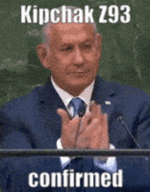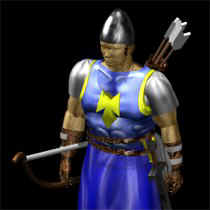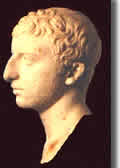0





















| Thumbs Up |
| Received: 5,410 Given: 6,858 |

Again:
Again:
Sumerian aga = crown (of legitimate kingship)
Turkic ağa = lord, master
Again:
Source: Chicago Journals, Current Anthropology, Vol. 12, No. 2, Apr., 1971, Sumerian-Ural-Altaic Affinities, p.215
The fact that Sumerian shares the most close linguistic similarities with Hungarian and Turkic clearly indicates the common origin of the last mentioned groups, and makes possible to state a genetic and linguistic based corroboration of the connection to the Pelasgians of pre-Homeric Greece and Etruscans (based on Alfréd Tóth's work "Etruscans, Huns and Hungarians", 2007), and hence confirms PCT in this case.
http://www.theapricity.com/forum/att...7&d=1392813170
http://www.theapricity.com/forum/att...8&d=1392813170
http://sumeroaltaic.wikia.com/wiki/Sun-ud-%C5%8Dt%60a
Hannibal Hannibal Hannibal:
http://www.theapricity.com/forum/att...4&d=1392984866
The problem is that the data and your own words is contradicting you.
I have to disappoint you, the only one who is in the position to laught is me. That's the sad truth. At the end at least you see the connection between the Old European substrate word Teuton/şeudan and Turkic Tudun.
Here is reality Hannibal:
The only thing that doesn't correspond are your brain cells
I am really fed up with your filthy claims, word twisting games and your hypcrite behavior. Now you even want to discredit historical linguistics?
Epic fail. Just epic fail.
You clever dickIf the opposite were the case we would've found R1a in several Kurgans by now, something which has yet to be observed.
https://en.wikipedia.org/wiki/Paleol...tinuity_Theory
Äääähm no, not really because of the simple reason that the whole horse-related diverse and fractured lexicon of the Indo-European languages ascends to the Turkic vocabulary. (http://www.federatio.org/joes/Eurasi...ies_0413s1.pdf)
https://en.wikipedia.org/wiki/Paleol...se_terminology
https://en.wiktionary.org/wiki/%D0%B...B0%D0%B4%D1%8C
https://en.wiktionary.org/wiki/Appen...a#Proto-Slavic
https://en.wiktionary.org/wiki/Appen...1wos#Etymology
https://en.wiktionary.org/wiki/Appen...%B1-#Etymology
Yes, archeology and antrhopology is the evidence you clever dick.
OMG mental illness at its best
"PCT reassigns the Kurgan culture to a people of predominantly mixed Uralic and Turkic stock."
https://en.wikipedia.org/wiki/Paleol...reconstruction
I am posting this the 4th time Hannibal: Anatole A. Klyosov, The Academy of DNA Genealogy, Newton, USA, Advances in Anthropology 2012. Vol.2, No.2, 87-105.
IF you are still not able to understand, you are truly mentally ill. Very sad, really, very...
ki-en-ĝir, approximately "land of the civilized kings" or "native land".
1. Sumerian ki = "lands" or "places"
Proto-Altaic: *ĭ̀k`i, "to live, settle, home, dwelling (of a family, kin)".
http://starling.rinet.ru/cgi-bin/res...coding=utf-eng
Proto-Altaic: *ki̯aǯur ("sand, steppe, earth")
http://starling.rinet.ru/cgi-bin/res...oding=utf-eng#
Proto-Turkic: *Kaŕ- ("to dig, to scrape, scratch, plane")
http://starling.rinet.ru/cgi-bin/res...coding=utf-eng
Proto-Altaic: *ki̯umo ("sand, dust")
http://starling.rinet.ru/cgi-bin/res...coding=utf-eng
Proto-Altaic: *kòt ("village, locality")
http://starling.rinet.ru/cgi-bin/res...coding=utf-eng
Proto-Altaic: *ki̯úne (" person; people, country")
http://starling.rinet.ru/cgi-bin/res...coding=utf-eng
hence Proto-Turkic *kiĺi (“person, people”)
https://en.wiktionary.org/wiki/ki%C5%9Fi#Etymology
This word is a base to following Turkic words...
kara ("dark soil, earth")
https://en.wiktionary.org/wiki/kara#Etymology_2
kent ("city")
https://en.wiktionary.org/wiki/kent#Etymology_2
konut ("housing, dwelling")
https://en.wiktionary.org/wiki/konut
kaya ("rock"), from Proto-Turkic *K(i)aja
https://en.wiktionary.org/wiki/kaya#Etymology
related to Sumerian kur ("a myth. locality/mountain; land, country; east, easterner, east wind")
This word is also found in Ancient Greek γῆ (gē), Pre-Greek/Pre-Indo-European word
https://en.wiktionary.org/wiki/%CE%B...#Ancient_Greek
kon ("to settle down, to perch"), koy ("to put, to lay down, to place"); from Proto-Turkic *ko-.
https://en.wiktionary.org/wiki/konmak
https://en.wiktionary.org/wiki/koymak
HENCE Sumerian ku to place, lay (down)
http://psd.museum.upenn.edu/epsd/epsd/e3113.html
hence Sumeroaltaic ga(-r) ("to put, place")
http://sumeroaltaic.wikia.com/wiki/Place-%C4%9Dar-ga
http://starling.rinet.ru/cgi-bin/res...coding=utf-eng
Hence Mongolian *ger ("house").
2. Sumerian en = "lord; master; ruler"
Proto-Turkic: *ēn-čü ("fief, land and vassals presented by the ruler; gift, dowry"), from Proto-Altaic: *ā́ni ("to hold, present")
http://starling.rinet.ru/cgi-bin/res...33&root=config
http://starling.rinet.ru/cgi-bin/res...75&root=config
Sumero-Altaic: en = "to hold, possess"
http://sumeroaltaic.wikia.com/wiki/L...F%C3%B3%C5%8Bi
3. Sumerian ĝir = "native, local"
related to Sumerian kur ("a myth. locality/mountain"), and hence Proto-Turkic *Kuŕ ("Northern slope"), ultimately from Proto-Altaic *k`i̯ŭ́jŕo ("cold wind, fog, North"; cf. Old Japanese kiri). Another possibility also includes either Middle Turkic qɨr ("mountain top, mountain ridge; steppe, desert, level ground") or South Siberian Turkic and Eastern Turki qor-am/qor-um ("rock, cliff, heap of stones"), from Proto-Turkic *Kor-um, ultimately from Proto-Altaic *k`ori ("hill; embankment, boundary"; cf. Middle Japanese kùró, Middle Korean kòráŋ and Tungusic xurē).
http://starling.rinet.ru/cgi-bin/res...coding=utf-eng
http://starling.rinet.ru/cgi-bin/res...coding=utf-eng
http://starling.rinet.ru/cgi-bin/res...coding=utf-eng
http://starling.rinet.ru/cgi-bin/res...coding=utf-eng
http://starling.rinet.ru/cgi-bin/res...coding=utf-eng
And again Hannibal:
"Also important is the following. In the more recent literature the name of Kangers (Kangars) is also mentioned in the course of an explanation of Sumero-Turkic parallels: kenger or keŋer is regarded as a "Sumerian proper noun," while Šumeru is seen as a garbled Akkadian rendering of this same name."
Source: Anthropology & Archeology of Eurasia, Bände 29-30, M.E. Sharpe Inc., 1990, p.35
Actually it has you clever dick. But hey, your brain cells....
"Dissecting this ethnonym into semantical components following the Türkic model of ethnonyms, in the variations Hvarizm, Horasm, Horezm we shall see two roots, Huar and As, and a personal case singular affix of belonging -м (-ым). Huar is in another way Suar, which consist of two roots su (hu > khu) "water" and ar, the most ancient Türkic ethnonym meaning "people, men": Huar as a whole is "River People". The presence of the ethnonym Suar in the ethnonym Huarasm indicates that Huarases to some extent are the descendants of the Subars (Suars) of the Near East. Besides, the ethnonym Suar (Huar) was actively used in the Caucasus, in the Ural-Itil region, and apparently, also in the Central Asia. The second part of the ethnonym Huarasm is As, it is also the most ancient Türkic ethnonym. The Huaras means Ases, but from a tribe of Suars. The Huarases created their state, and it, and the country were called not simply the Huaras, but with a love were called Huarasm "My Huaras". Eventually, the name Huarasm of the country began also be applied with a meaning of the ethnonym Huarasm > Horezm. That the first part of the ethnonym Huaras consist of the Türkic ethnonym Suar (Huar) tells the variation Horamni, with no ethnonym As, but is an affix of belonging -м (ni-, apparently, a later formation under the influence of the Iranian). In the single root (suar/huar) in the two ethnonyms, Sumer (Sumer/Sumar/Subar) and Horezm (ѕuar-as-m) we see visible traces of the ethnic kinship of the Sumerians and Khwarezmians. Besides, we also observe that Sumerians had their endoethnonym as Kangar, and the Khwarezmians were called by the other peoples Kangha or Kangüy [Tolstov S.P., 1948, 341]. One primary ethnonymic root kang/kang "primogenitor" is the base of all these three ethnonyms. With the Horasmians (Khwarezmians) were closely connected to Pards (Parthians). A weighty argument for the Khwarezmians (Horasmis), Sakas, Sogds (Sakady), Parthys (Rus. Parfyane), Kushans to be from the very beginning Türkic-speaking is that these peoples also preserved their ancient ethnonym. If they were Iranian-lingual from the very beginning, and under the influence of the "newcoming" Türks they switched to the Türkic language only in the 4th-7th cc., they would have accepted a new ethnonym during their assimilation among the Türks, namely the ethnonym of the "newcoming" Türks. Usually the assimilated people, if it did not create a state and does not rule it, always accepts the ethnonym of assimilator people. A certain part of the Sumerians - Kangars, apparently, migrated to the Central Asia, where they merged with the Khwarezmians, in addition passing on to them the ethnonym Kangar, which became the reason for naming the Horasm(s) by the ethnonym Kangha/Kangüy/Kangar. In an official historical science it is recognized that Khwarezmians from the very beginning were Iranian-lingual, only in the 6th-7th centuries, under the influence of the nomad Türks they switched from the Iranian language to Türkic. As it was already said above, this viewpoint does not bear criticism. Actually, the Khwarezmians from the very beginning were Türkic-speaking, and in that condition joined the body of the modern Türkic-speaking peoples of the Central Asia and Kazakhstan."
http://s155239215.onlinehome.us/turk...is76-124En.htm
Cool, and now look at this...
Turkmen and neighboring Turkic R1b:
No Iranian R1b
Again, Tokharians are not an Indo-European, but a Turkic tribe! “Tocharian” is a misnomer euphemism for Agnean (Tocharian A) and Kuchanian (Tocharian B). Keep searching for IE substrate in Proto-Turkic btw..
Anatole Klyosov's genetic research has shown that the R1a basehaplotype 13 25 15 10 12 12 10 13 11 31 -- 15 14 20 12 16 11 23 (with a common ancestor of 3400+/-505 ybp, the likely times for the Aryans coming to India) is reasonably close to the Bashkir Turkic and Kyrgyz Turkic base haplotypes (both R1a-L342.2). A common ancestor of all the reported Indian (Tamil) haplotypes and Bashkir and Kyrgyz haplotypes lived around 5000 ybp, which fits the timespan to R1a-L342.2 common ancestor.
source: http://archiver.rootsweb.ancestry.co...-12/1356088114
"Actually, the hypothesis about Iranian-linguality of the Eurasian steppe cattlemen, built on the comparative analysis of linguists between the languages of ”Avesta” and modern European languages, is a fruit of the Eurocentrism theories. According to that theory the Türkic-lingual cattle breeding tribes of the Eurasian steppes were declared to be Iranian-lingual." (A.Askarov, The Aryan problem: new approaches and views, Tashkent, 2005)

















| Thumbs Up |
| Received: 37,278 Given: 39,691 |

God's wounds, he's been banned and you're insane. Would you let it drop?
Who is rich? He who is happy with what he has - Simeon ben Zoma, Ethics of the Fathers, Talmud, Avot 4:1
I live here. I also live here.
Europeans worldwide * Longbowman's family on 23andme * Classify Longbowman * Ask Longbowman anything



















| Thumbs Up |
| Received: 5,410 Given: 6,858 |

















| Thumbs Up |
| Received: 37,278 Given: 39,691 |

Who is rich? He who is happy with what he has - Simeon ben Zoma, Ethics of the Fathers, Talmud, Avot 4:1
I live here. I also live here.
Europeans worldwide * Longbowman's family on 23andme * Classify Longbowman * Ask Longbowman anything



















| Thumbs Up |
| Received: 5,410 Given: 6,858 |




















| Thumbs Up |
| Received: 14,012 Given: 11,416 |

I call on my Turkish brothers to revert to Judaism. PM me to find the true religion.
Spoiler!



















| Thumbs Up |
| Received: 5,410 Given: 6,858 |
There are currently 1 users browsing this thread. (0 members and 1 guests)
 Kosova
Kosova
 Türkiye
Türkiye
 United States
United States
Bookmarks